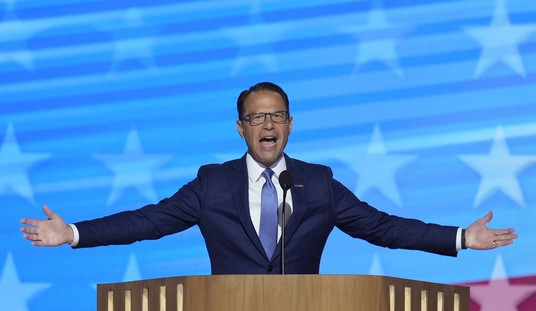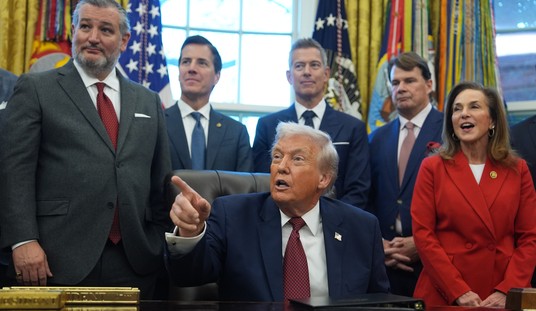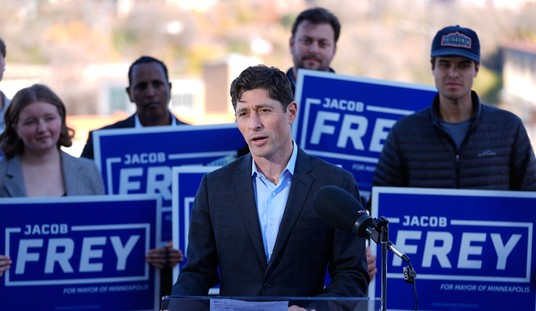Who wouldn’t be? Well, Hillary Clinton for one, at least while on the campaign trail. Chuck Schumer’s proposal for a new revenue stream for Washington DC became so toxic that Barack Obama dropped it years ago, but now Schumer wants to revive the unpopular idea and tie it around Hillary’s neck, and the necks of Democrats running for the Senate in 2016:
Sen. Chuck Schumer (D-N.Y.) outlined a path Tuesday for Hillary Clinton to enact a carbon tax if the Democrats prevail in the 2016 elections.
Schumer, the Senate Democrats’ leader-in-waiting, said that a Clinton presidency and the return of his party to the Senate majority in 2017 could pave the way for lawmakers to enact a carbon tax to help fund the government.
The mere suggestion of a new fee on the emissions blamed for climate change, however, could become a political headache for Clinton and other Democrats, and it’s routinely dismissed by Republicans. The Obama administration disavowed the idea after the 2012 election.
Schumer wants the money for the general fund, arguing that Republicans have been “starving” Washington DC and that the GOP would largely agree with that assessment. Of course, Schumer doesn’t mention that Republicans would consider that a feature rather than a bug, although the “starvation” in this case still represents 17.5% of GDP in FY2014, and an estimated 17.7% in FY2015, with those numbers increasing to 19.3% by FY2020 under current budget projections. The “starvation” rate in FY2014 is the highest level since FY2007’s 17.9%, and is the second-highest level since FY2001’s 18.8%.
The general-fund argument is important, because it makes the least compelling case for a carbon tax to voters. The Washington Post fact-checked polling claims from carbon-tax advocates and made this clear:
An April 2014 Yale/George Mason survey also found 55 percent in support of “requiring fossil fuel companies to pay a carbon tax and use money to pay down the national debt.” But when the same question was asked in a follow-up version with a price — an average $180 a year for the average household — only 36 percent of registered voters supported it, and 62 percent opposed it.
The public’s enthusiasm for the carbon tax also was sensitive to what the tax revenues would potentially fund. For example, a July 2014 survey by the University of Michigan’s Center for Local, State and Urban Policy found that most Americans oppose a carbon tax when there is no specified use for the tax revenue. A revenue-neutral carbon tax, in which the revenues are returned to the public as a rebate check, received 56 percent support. Sixty percent supported a tax with revenues used to fund research and development for renewable energy programs.
Hillary Clinton is already getting pushed farther and farther to left without help from Schumer. She hardly needs to add a plank to the platform bragging about how she plans to make energy costs “necessarily skyrocket,” to use Obama’s phrase from January 2008, as an integral part of her campaign. Of course, that’s exactly what a tax on energy consumption will do, as producers pass along the costs of the tax to consumers, who then presumably forget that if and when rebate checks or tax credits show up at the end of the year.
That won’t even fly in Minnesota, where these kind of pie-in-the-sky interventions seem to sell better than elsewhere. At the moment, Hillary isn’t selling well here either, as the left-leaning MinnPost reports this morning. Her approval rating in this blue state is only 35%, and is 14 points underwater:
The Minnesota Jobs Coalition and The Tarrance Group conducted the poll June 9, 10, and 11, sampling 600 voters by landline and cell phone. Yes, the Tarrance Group polls for Republican candidates, but it also produces the Georgetown University Battleground poll, a bipartisan political survey conducted with Democratic pollster Lake Research Partners. The poll has a margin of error four percentage points.
Clinton has the approval of 35 percent of likely voters contacted for the survey, with 49 percent saying they disapprove of her.
Dayton has a 51 percent approval rating and 42 percent disapproval, nearly identical to the 600-person Star Tribune poll taken in March. …
Among women voters, Clinton has a 40 percent approval and a 46 disapproval rating, weaker than in some national surveys. Among unmarried women, her approval climbs to 42 percent, with 43 percent disapproving. Among married women, her approval drops to 39 percent, with 48 percent disapproving.
If Hillary puts Schumer in charge of the campaign, this could be a high-water mark.







Join the conversation as a VIP Member